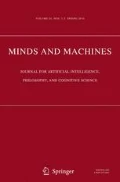Abstract
The emergence of social networking sites has created a problem of how the self is to be understood in the online world. As these sites are social, they relate someone with others in a network. Thus there seems to emerge a new kind of self which exists in the online world. Accounting for the online self here also has implications on how the self in the outside world should be understood. It is argued that, as the use of online social media has become more widespread, the line between the two kinds of self is becoming fuzzier. Furthermore, there seems to be a fusion between the online and the offline selves, which reflects the view that reality itself is informational. Ultimately speaking, both kinds of selves do not have any essence, i.e., any characteristic inherent to them that serves to show that these selves are what they are and none other. Instead an externalist account of the identity of the self is offered that locates the identity in question in the self’s relations with other selves as well as other events and objects. This account can both be used to explain the nature of the self both in the online and the offline worlds.
Similar content being viewed by others
References
Brandon-Mitchell, D. (2011). How to be a conventional person. Available at http://www.arts.usyd.edu.au/philosophy/documents/dbm/Convent.pdf. Accessed 8 March 2011.
Butler, J. (2008). Of personal identity. In J. Perry (Ed.), Personal identity (2nd ed., pp. 99–106). Berkeley, CA: University of California Press.
Floridi, L. (2008). A defence of informational structural realism. Synthese, 161(2), 219–253.
Goldman, A. I. (1975). Innate knowledge. In S. P. Stich (Ed.), Innate ideas (pp. 111–120). Berkeley, CA: University of California Press.
Goldman, A. I. (1986). Epistemology and cognition. Cambridge, MA: Harvard University Press.
Goldman, A. I. (1999). Knowledge in a social world. Oxford: Oxford University Press.
Hall, E. T. (1976). Beyond culture. Anchor Books.
Hodgkinson, M. (2009). By 2040 you will be able to upload your brain… Available at http://www.independent.co.uk/news/science/by-2040-you-will-be-able-to-upload-your-brain-1792555.html. Accessed 27 November 2010.
Kant, I. (1997). Critique of pure reason (P. Guyer & A. Wood, Trans.). Cambridge: Cambridge University Press.
Locke, J. (2008). Of identity and diversity. In J. Perry (Ed.), Personal identity (pp. 33–52). Berkeley, CA: University of California Press.
Reid, T. (2008). Of Mr. Locke’s account of our personal identity. In J. Perry (Ed.), Personal identity (pp. 107–112). Berkeley, CA: University of California Press.
Searle, J. (1990). The mystery of consciousness. New York Review Books.
Searle, J. (1997). The construction of social reality. New York: Free Press.
Shoemaker, S. (1984). Personal identity: A materialist’s account. In S. Shoemaker & R. Swinburne (Eds.), Personal identity. Oxford: Blackwell.
Williams, B. (1973). Problems of the self; philosophical papers 1956–1972. Cambridge: Cambridge University Press
Wheeler, J. A. (1990). Information, physics, quantum: The search for links. In W. H. Zureck (Ed.), Complexity, entropy, and the physics of information. Redwood City, CA: Addison Wesley.
Zhao, S., Grusmucka, S., & Martina, J. (2008). Identity construction on Facebook: digital empowerment in anchored relationships. Computers in Human Behavior, 24(5), 1816–1836.
Acknowledgments
Research for this paper has been supported in part by the Commission on Higher Education, Ministry of Education, the Thailand Research Fund, and a grant from the National Research University Project, project no. AS569A.
Author information
Authors and Affiliations
Corresponding author
Rights and permissions
About this article
Cite this article
Hongladarom, S. Personal Identity and the Self in the Online and Offline World. Minds & Machines 21, 533–548 (2011). https://doi.org/10.1007/s11023-011-9255-x
Received:
Accepted:
Published:
Issue Date:
DOI: https://doi.org/10.1007/s11023-011-9255-x




